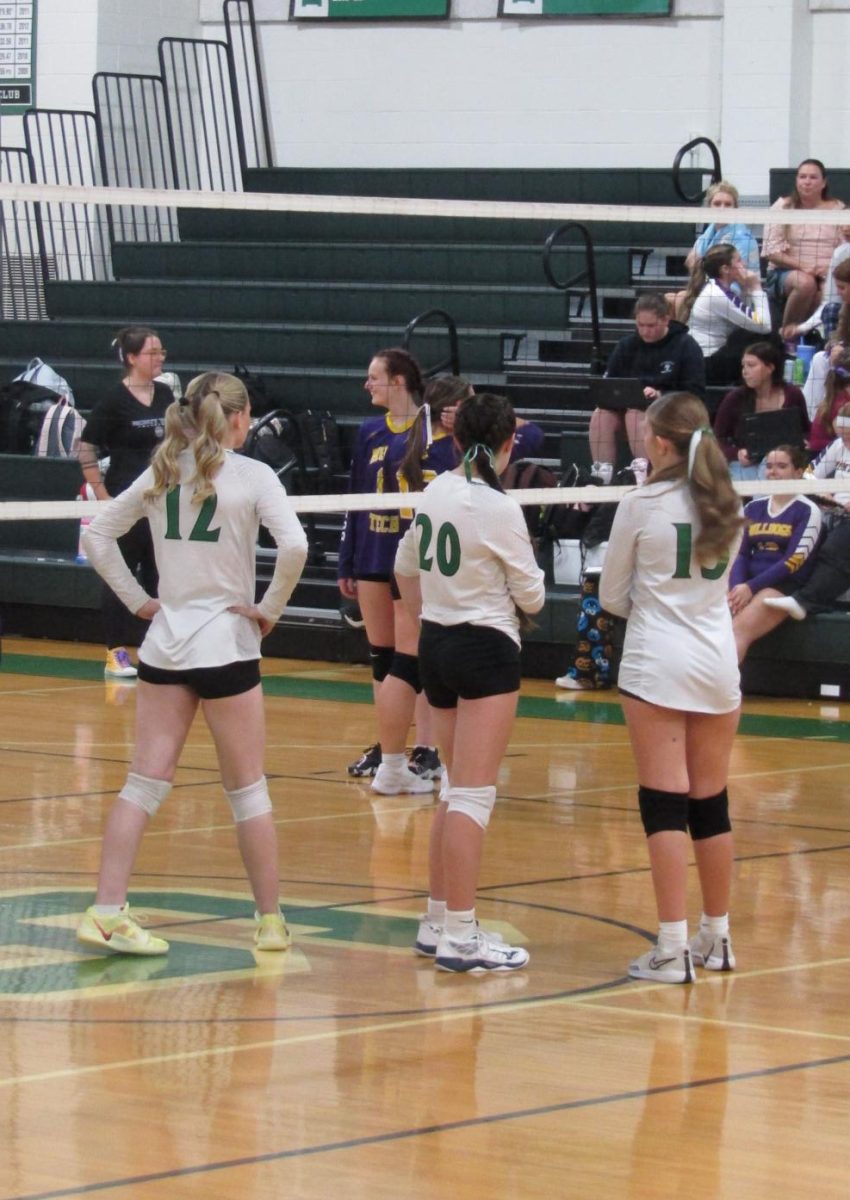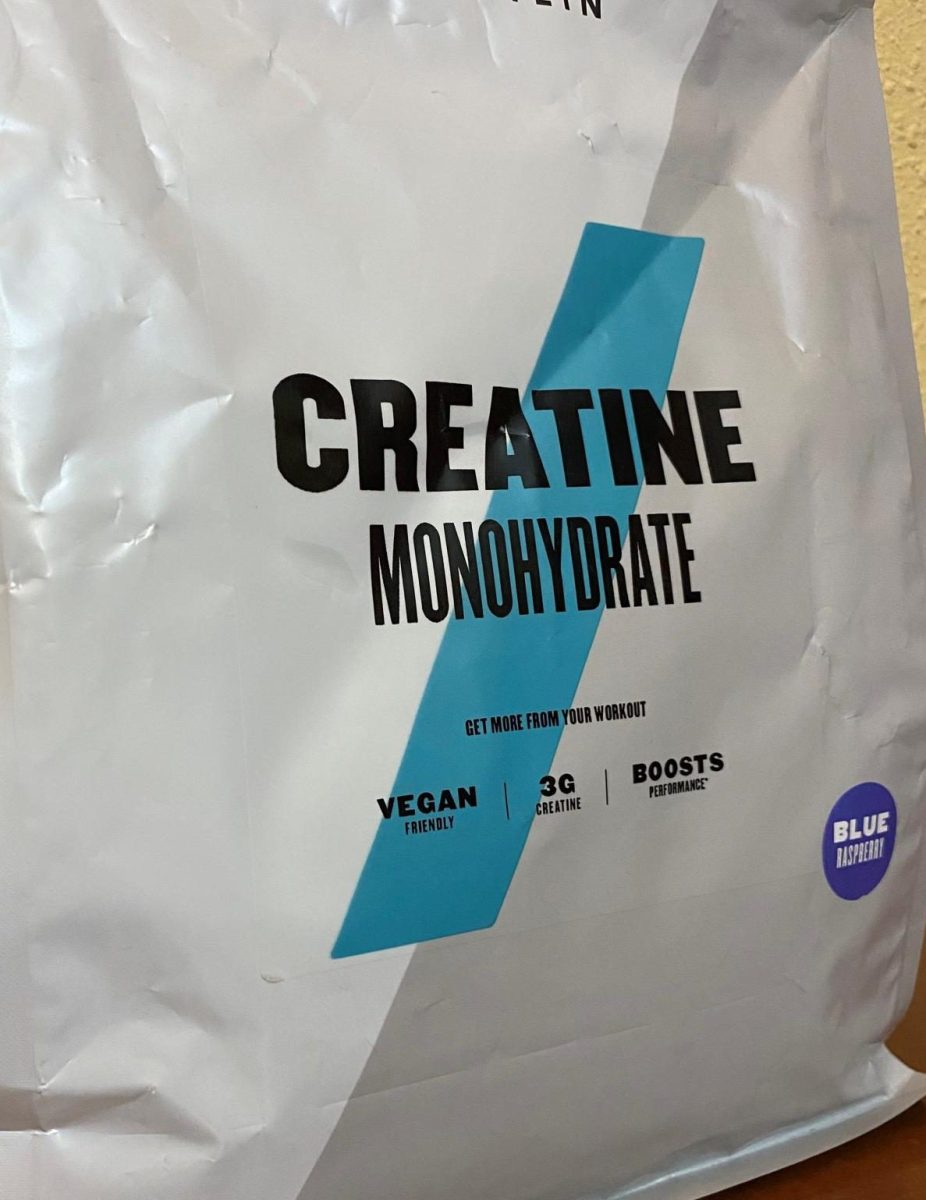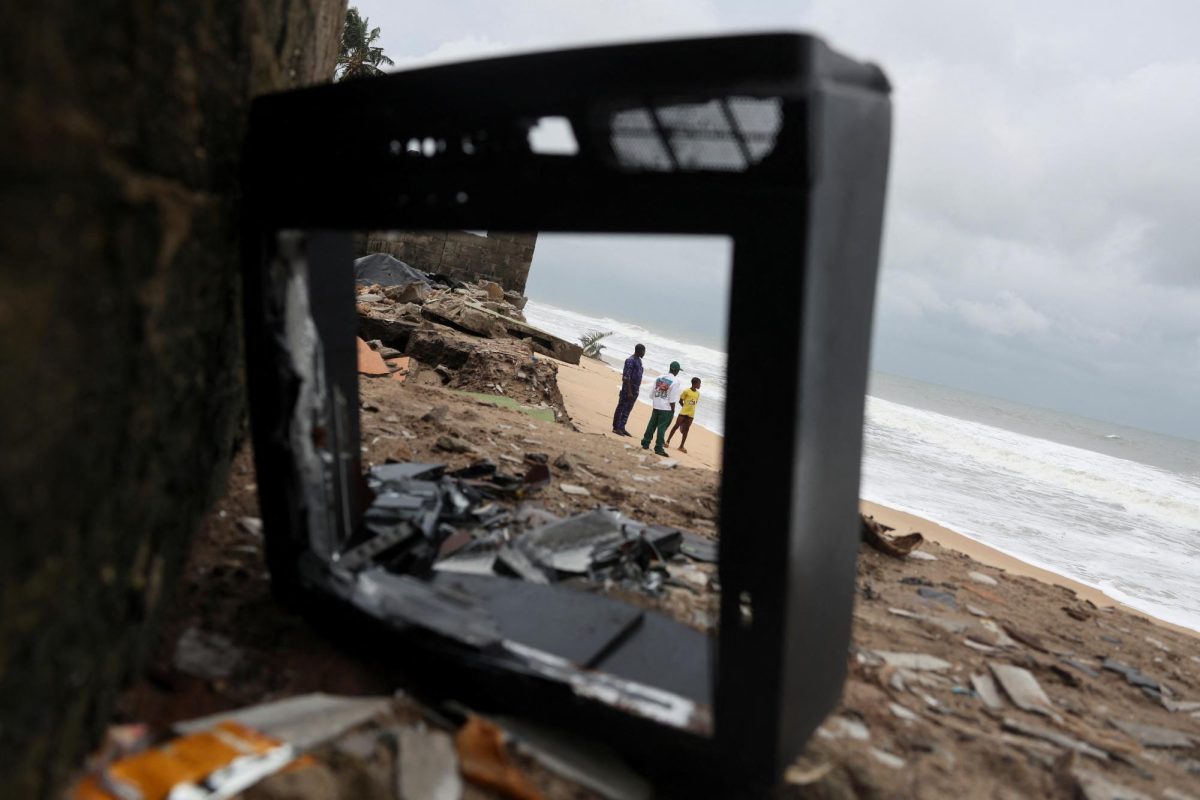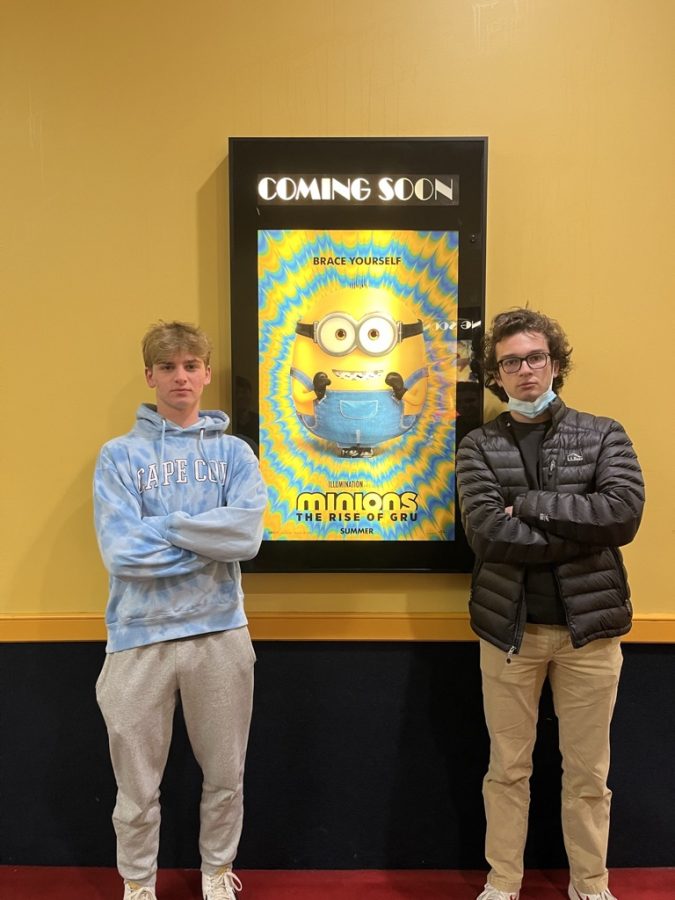Sutton High’s Watchlist
Matteo and Jake discuss what Sutton High should be watching in the cinema.
April 1, 2022
Movies are the perfect way for a studio to express an idea or spread a message. Both authors of this article have a particular interest in film.
Matteo: In 2021, I could not think of a sadder year for someone like myself who tries my hardest to support filmmaker-driven films. Films of last year that I went to see that fit into this category would be: Last Night In Soho, The French Dispatch, West Side Story, Nightmare Alley and Licorice Pizza. The directors of these movies, such as Steven Spielberg and Guillermo del Toro, are influential to all different eras of cinema and all have respective and unique voices. These specific films all have something else in common besides the fact that they are filmmaker-driven; they all went overlooked in the movie-going landscape as films like Spider-Man: No Way Home and other big-budget films dominated.
Sutton High watches a wide variety of films, and there is no certain genre that stands out as dominant. Comedies such as Step Brothers (2008) and The Hangover (2009) are loved by all. Essentially all students worship Disney and Pixar animations such as Moana (2016), Finding Nemo (2003), and Up (2009). Obviously, franchise films such as Star Wars and Marvel movies are universally praised.
Jacob is in support of superhero films and sees value and in their production.
Jacob: There is indisputable damage that superhero movies cause on traditional film. Film buffs often view the cash-grabbing CGI battles as terrible for classic cinema. For instance, some high schoolers only go to the theater to watch Marvel movies, and it is disheartening to see people’s unwillingness to step out of their comfort zone. Nonetheless, this simply proves the point that superhero movies sell tickets. This generates a great deal of revenue which immensely helps movie theaters. The money that superhero movies produce also allows for more dramatic fights, well-known actors, and more sequels than anyone could ever ask for. All film lovers should admire any method of getting people to the theater.
The purpose of superhero movies is not to convey a deep philosophical message, but instead to keep the viewers entertained with a simple plot and easy-to-follow dialogue. These movies do not take themselves too seriously and accomplish an unrealistic artistic goal. Superheroes teach kids the correct morals and inspire the younger generations to put others before themselves. In Spider-Man 3 (2007), Peter Parker says, ‘It is our choices that make us who we are, and we can always choose to do what’s right.’ To this day, the message has stuck with me and I believe the rest of my childhood has been heavily impacted by the production of these movies.
Matteo sees how superhero movies have harmed film culture and how they repress traditional cinema.
Matteo: Guardians of the Galaxy (2014), The Suicide Squad (2021), and Spider-Man: Into the Spider-Verse (2018) are all recent superhero films that have all had a considerable impact on me creatively. When I desire that creative push, I return to the scene in Spider-Man: Into the Spider-Verse where Miles Morales jumps off the skyscraper to take in the power that scene holds. Or several moments in The Suicide Squad where it takes pride in it’s R-rated freedoms and is not afraid to show us the dirtiness that is often left out of most of these films. I probably would not have such a deep admiration for film in general if Guardians of the Galaxy never came along. I remember the day vividly when I went to an early matinee and was blown away by how I had never seen a film like it before.
So I do not dislike superhero films. Without them, I do not think I would be the same person I am today. But there is a glaring issue that I find with superhero films as of today that I want to address.
In October of 2019, Martin Scorsese, director of such films as Taxi Driver (1976), Goodfellas (1990) and The Wolf of Wall Street (2013), made the claim that superhero films were not “cinema.” This sparked an online revolt of people in defense of Mr. Scorsese, and people in opposition brought truth to a real issue that faces movie-going culture of today. Filmmaker-driven cinema has seemingly been put in the backseat to big-budget franchise films.
While there are superhero films that I do have a deep admiration for, it feels like one every two or three years stands out from being nothing but mediocre. My favorites all feel somewhat self-contained and their writers’ and director’s voice are seen within the film. But as more superhero films today are becoming more interconnected, I have noticed they seem to be losing focus of a clear vision in favor of setting up a future for more films and TV shows. It seems the only films people go to see in a theater are superhero films, and when only a few stand out every couple years, it feels unfair to more personal and filmmaker driven films to get shafted in favor of theme park movies that aren’t anything special.
Both authors decided to recommend movies for each other. Matteo’s choice for Jacob was Funny People (2009). This movie was directed by Judd Apatow and starred Adam Sandler and Seth Rogen. Jake recommended Hacksaw Ridge (2016) for Matteo. This movie is directed by Mel Gibson and the lead character is played by Andrew Garfield.
After watching Funny People, Jacob writes: Going into this movie, I assumed it would simply be another Adam Sandler comedy. In reality, critics described Funny People as a satirical psychological comedy-drama. It was so much more than a mere comedy, and I would argue that the entire second half was a movie of its own. Adam Sandler’s complex character was incredibly well-written and I loved to see him develop as the movie went on. If I were to critique this movie, I found that the second half dragged on for too long and the plot began to slow down in the last 45 minutes. Despite some minor disagreements I have with the director, I was left in tears of laughter during several scenes, and I am glad to have taken the time to watch this movie.
Matteo had some conflicting opinions about Hacksaw Ridge, saying: As much as I love film, there are certain types of films that I do not necessarily connect with. And one of those types of films are ones about or involving war. Overall, while I did not have any real strong opinions on the film, it surprised me. While the second half of the film really shines, illustrating the film’s “anti-war” themes, it took a while for it to get to that place. The first twenty minutes were an automatic set-off. The performances and dialogue were not subtle and it all played like a parody of “underdog” story type films, which this film is a version of. The point in the film which had me the most engaged was when they entered the battlefield and Desmond’s journey to save as many fallen American or Japanese soldiers as he could. While I did not love Hacksaw Ridge, the film surprised me in how engaged I became as it went along.
Jacob comments: Over February break, I was able to find the time to watch ten movies. My three favorites were Parasite, Eternal Sunshine of the Spotless Mind, and Se7en. As I continue to discover new movies, I am constantly amazed by how heavily they affect me. I find that watching movies is a safe opportunity to escape the stress and chaos of our world right now.
For Jacob, movies such as Whiplash, Prisoners, and The Perks of Being a Wallflower revealed how captivating cinema can be. Matteo recommends the films Booksmart, Forgetting Sarah Marshall, and Good Time (starring Robert Pattison, in honor of the recent opening of The Batman).
Both authors encourage the teens of Sutton High to go to the theater and support films besides superhero films.








































